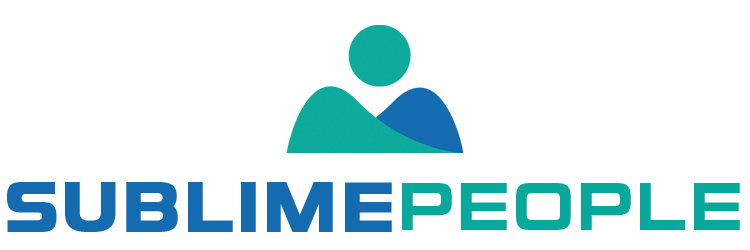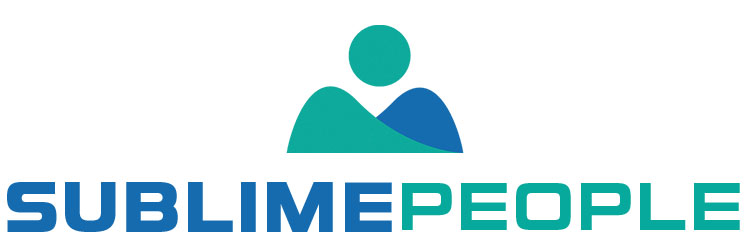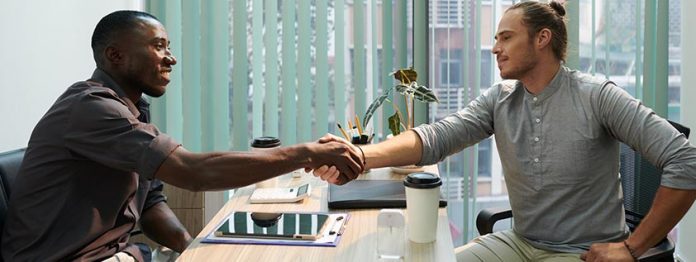Whether you’re an interviewer or interviewee, face-to-face job interviews can be a nerve-wracking experience. Even the most experienced professionals might find themselves feeling anxious in advance of their appointment. Despite this, interviewing in person remains the best way for employers to get to know potential candidates on both a professional and personal level. With that said, it’s important to go into your next face-to-face with some knowledge on hand so you can make sure it leaves the best possible impression.
Let us explore the advantages and disadvantages of conducting face-to-face interviews, as well as offer up some tips that will make your interview process run smoother than ever before
In this Article:
What is Face to Face Interviewing?
Face to face interview is a type of data collection method for interviewing prospective employees or job candidates. It involves a face-to-face meeting between an interviewer and the candidate, allowing for both parties to interact more directly than with other types of interviews such as telephone or online interviews. During face-to-face interviews, interviewers usually ask questions about the job and the candidate’s background, skills, and experiences.
This type of interviewing allows both parties to get to know each other better, leading to a more personal rapport which can create a better understanding of each other’s needs and expectations. Furthermore, face-to-face interviewing allows the interviewer to read body language which can give additional insight into making their decision during the hiring process.
Why face to face interview better than an online interview?
Face to face interviews are often the preferred method of interviewing as they allow employers to make face-to-face connections with potential hires and determine a candidate’s ability to interact with others.
Face-to-face interaction also allows for more natural conversations than those that would be had over an online platform where it can be more difficult for the interviewer to get a feel for the candidate’s personality and communication skills. face to face interviews provides visual body language & facial expression cues that could help them gain insight into what type of person the candidate is and how he/she would fit in with the organization.
Lastly, face to face interactions help build relationships between future teammates, something that cannot be established in an online interview.
All in all, face-to-face interviews are generally well worth the effort when considering how much a company will benefit from gaining information such as behavioural cues and building relationships between future colleagues.
How do you conduct a face to face interview?
Face-to-face interviews can be conducted in many different ways.
In-person interviews
This is the most common face-to-face interview method. It involves a face-to-face meeting between the hiring manager
and the candidate in which questions about the job and the candidate’s background, skills, and experiences are asked.
Video interview
Video interviews are becoming more popular, as they combine the benefits of face-to face interactions with the convenience and cost savings of online interviewing. Video interviews allow employers to connect with people from anywhere in the world for face-to-face conversations without needing to bring them into an office setting.
What are the advantages & disadvantages of face to face interviewing?
Face-to-face interviews are advantageous over other data collection methods. These include:
1. More engaging
Face-to-face interviews are more engaging than other types of interviews, such as phone or Skype interviews. This is because they allow for more nonverbal communication, which can help to build rapport and trust between the interviewer and interviewee. Additionally, face-to-face interviews allow for more spontaneity and back-and-forth conversation, which can make the interviewee feel more comfortable and relaxed.
2. More informative
Face-to-face interviews are also more informative than other types of interviews. This is because they provide the opportunity for the interviewer to ask follow-up questions and clarify questions to get a better understanding of the interviewee’s answers. Additionally, face-to-face interviews allow the interviewer to observe the interviewee’s body language, which can provide valuable information about their true feelings and emotions.
3. Greater opportunities for rapport building
Face-to-face interviews also offer greater opportunities for rapport building than other types of interviews. Rapport is a relationship of mutual trust and respect between two people, and it is important to build a strong working relationship. Face-to-face interviews allow for more personal interaction between the interviewer and interviewee, which can help to build rapport more quickly and effectively than other types of interviews.
4. Allows for use of visual aids
Another advantage of face-to-face interviewing is that it allows for the use of visual aids. Visual aids can be helpful to explain complex concepts or ideas or to provide an example of something that the interviewee is discussing. visual aids can help to keep the interviewee’s attention focused on the conversation, as they will be able to see them while they are talking.
5. Reduces opportunity for distractions
Face-to-face interviewing also reduces the opportunity for distractions, as both the interviewer and interviewee will be focused on each other rather than on anything else that might be going on around them. This is in contrast to phone or Skype interviews, where it is easy for either party to become distracted by things such as email notifications or background noise. Face-to-face interviews also allow for a more private conversation, as there is less chance that others will overhear what is being said.
6. Increases interviewee’s comfort level
Another advantage of face-to-face interviewing is that it increases the comfort level of the interviewee. This is because they will be able to see the interviewer’s facial expressions and body language, which can help to put them at ease. Being near the interviewer can also help to reduce any feelings of anxiety or nervousness that the interviewee may be feeling.
Disadvantages:
1. Time-Consuming
One of the primary disadvantages of face-to-face interviews is that they can be quite time-consuming. In addition to the time it takes to conduct the interview, you also need to factor in travel time if the interviewee is located in a different city or state. This can make scheduling an interview quite difficult, especially if you are trying to coordinate with multiple interviewees.
2. May be costly
Another disadvantage of face-to-face interviews is that they can be quite costly. In addition to the cost of travel, you also need to factor in the cost of renting a meeting space or office if you are interviewing in person. This can add up quickly, especially if you are interviewing multiple people.
3. Intimidating for some people
Face-to-face interviews can also be quite intimidating for some people. This is especially true if the person being interviewed is not used to being in front of large groups of people or if they are shy by nature. Some people may feel like they are being interrogated when they are being interviewed in person, which can make them uncomfortable and less likely to open up.
4. Difficult to record
Another disadvantage of face-to-face interviews is that they can be difficult to record. If you are not using a professional recording device, it can be hard to capture all of the information that is being discussed during the interview. Additionally, even if you are using a professional recording device, there is always the possibility that something will go wrong and the recording will not be captured properly.
5. Not all interviewees will be available
Another downside of face-to-face interviews is that not all interviewees will be available to meet in person or for online chat. This can be for a variety of reasons, such as distance or scheduling conflicts. If you are only able to conduct face-to-face interviews with a limited number of people, this could bias your results.
6. You may miss nonverbal Cues
Finally, one of the disadvantages of face-to-face interviews is that you may miss nonverbal cues from the person you are interviewing. This includes things like body language and facial expressions, which can give you important information about how the person is feeling or what they are thinking.
Tips for a successful interview
When it comes to interviews, being prepared is key. Doing your research and taking the time to practice will ensure that you have a successful interview outcome. No matter what type of job you are applying for, having a strong preparation plan in place can help you ace your next interview.
1. Be prepared
The first step in ensuring a successful face-to-face interview is to make sure that you are prepared. This includes researching the company and position you are interviewing for, as well as preparing some questions of your own. Before your interview, be sure to look through the company’s website and gather a few tidbits of information that you can share during the conversation. This will show the hiring manager that you have done your research and are invested in the position.
2. Be friendly
Another key to a successful face-to-face interview is to be friendly and personable. Make sure that you greet the interviewer with a smile and maintain eye contact throughout the interview. Additionally, try to be engaging and ask questions that will give you more information about the company or position.
3. Listen attentively
It’s also important to listen attentively during the face-to-face interview. Try your best to pay attention to what the interviewer is saying and make sure that you are answering their questions thoroughly. Additionally, it is helpful to take notes during the interview so you can remember key points for future reference.
4. Be honest
It’s important to be honest and open during a face-to-face interview. Don’t exaggerate your accomplishments or skills, as this can lead to problems in the future. Speak clearly and confidently and avoid using vague language or making assumptions about the company or position.
5. Brush up on your CV
Finally, it’s a good idea to brush up on your CV before the face-to-face interview. This will help you to stay focused and answer any questions that relate to your work history or qualifications. Make sure that you have copies of your CV available for the interviewer, in case they need more information.
Dress for success
When it comes to face-to-face interviews, dressing for success is essential. Choose an outfit that is professional and appropriate for the job you are applying for. Avoid wearing clothing that is too revealing or colourful, and make sure that your hair and makeup are neat and polished. Wearing a nice pair of shoes can also show the interviewer that you take the job seriously and are ready for the challenge.
Bottom Line
Whether you are conducting a face-to-face interview or a phone interview, being prepared with thoughtful questions is key to learning about a candidate’s qualifications. That said, face-to-face interviews can provide more accurate information than a phone or Skype interview because of the face to face interactions and the body language that comes with it. By taking the time to understand the advantages and disadvantages of each type of interviewing style, you can be sure to ask the best questions to help make your hiring decision.




